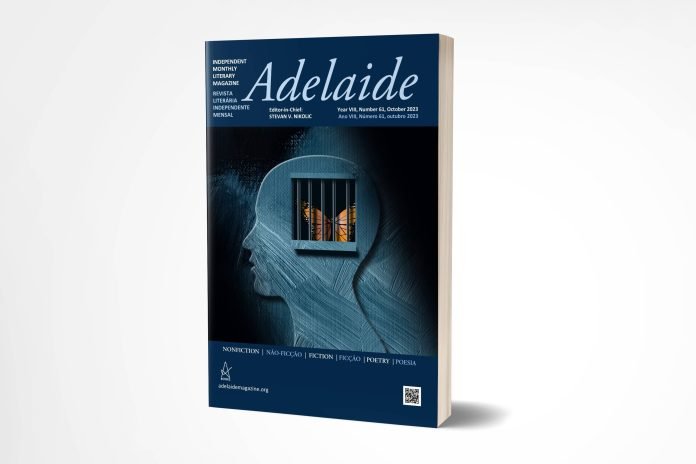Rise-and-grind. Hustle to win. Be a go-getter. This is the messaging that business owners receive from day one. Entrepreneur Magazine tells us that a “positive mindset” is the #1 trait of a successful business person. This broad business messaging adds unnecessary burden to an already difficult path. A burden brought upon the one in five Americans that suffer from mental disorders by a party of privileged entrepreneurs who believe everything falls into place ‘just by staying positive.’
Articles and analyses tout entrepreneurs such as Steve Jobs and Thomas Edison over and over with the aim to show us that we, too, can change the world, if only we prioritize productivity and hold ourselves to the highest of principles. The underlying message: if we fail it is the fault of our personal standards, because our predecessors were able to succeed against greater odds.
This kind of messaging shames entrepreneurs with chronic conditions such as depression, fibromyalgia, Premenstrual Dysphoric Disorder, and long COVID. Conditions that increase the chances of choosing entrepreneurship in the first place. Despite our pain, we remain prolific powerhouses, filled with clarity of purpose and the drive to produce something that improves the lives of others. But the toxic positivity that hustle culture spouts would have us believe we dance on the edge of defeat because our minds are unable to constantly ‘foresee a better future’ through ‘right thinking.’
Employers won’t tolerate the frequent disappearance of those of us with chronic conditions, and the pressure of a rigid nine-to-five can be overwhelming. Not to mention those of us with depression experience an average loss of 33% of our income due to such absences. So we turn to the greater control and flexibility of entrepreneurship.
Yet the prevailing entrepreneurial messaging teaches us that, where we focus, so shall we find ourselves. Mindset is the key to success and, if anything goes wrong, it was manifested through wrong thinking. Known as “hustle culture,” it is reinforced by weekend-long hackathons and suggestions that we ‘crush the meeting’ or ‘smash the record.’
I am no stranger to this dissonance.
In 2015, I was five years into my entrepreneurial journey, yet some weeks I couldn’t get out of bed. At the time, I didn’t know I am amongst the 8% of women that suffer from Premenstrual Dysphoric Disorder or PMDD. My hormones sabotage my brain’s ability to think clearly, feel well, and take action for up to a third of each month. Some months are worse than others, and the trend is downward until menopause. In fact, women with PMDD average as many down days as people with Major Depressive Disorder.
Many of my down periods previous to diagnosis had been bad enough that I spent entire weeks in bed watching Netflix to cope with the brain fog and depression. The alternative to that mind-numbing sitcom distraction was to allow my thoughts to devolve into the darkest corners of my psyche. Corners that include convictions like ‘this is not CEO behavior,’ ‘you have nothing more to offer the world,’ and ‘you should give up and die.’ I observed my own mind grinding itself into the ground and wondered, ‘How can I ever lead a business again?’ Knowing these dark designs are caused by the disorder certainly helps in moment-to-moment coping. Experiencing the effects of the disorder on my life’s work, however, is confidence-crushing.
As a result, I have built self care into my businesses and the systems I build for other entrepreneurs. And they have worked. Despite a loss of two-thirds of my working potential, I have presented two TEDx Talks, won prestigious awards from Forbes and BEQ, and published an award-winning book. My clients have equally found that self care is the true foundation of entrepreneurship — not the pressure to keep a “positive mindset” at all times as Entrepreneur Magazine and others set forth.
With burnout at an all time high and chronic conditions like long COVID disrupting old business norms, it’s time for the messaging around success to change. Us entrepreneurs have chosen a fulfilling career by founding a business, but it is a tough one. One that requires our ongoing strength and health. If we are to make business leadership a long-term lifestyle, we must take care of ourselves. As entrepreneurs, we have the power to build that compassion into our businesses for ourselves, our employees, and the customers we serve.
Veronica Zora Kirin is a queer Croatian/American writer currently living in Berlin. Kirin is cofounder of Anodyne Magazine, an arts and lit mag featuring FLINTA* health experiences. She is the author of “Stories of Elders,” documenting the high-tech revolution as lived by the Greatest Generation, which received the National Indie Excellence Award and was a finalist for the International Book Award. Her short stories, poetry, and essays have been published in the New Feather Anthology, Unburied Anthology, Scare Street, Scars, and elsewhere. She is currently working on her debut novel. Read more at https://veronicakirin.com/books






















